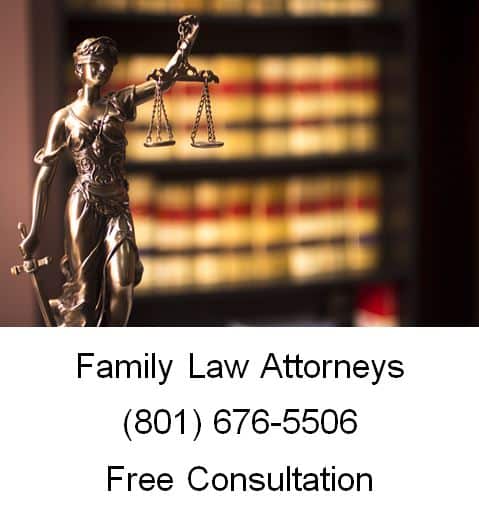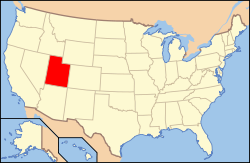
If you are thinking how your properties and assets will be distributed after your death, speak to an experienced Riverton Utah family lawyer.
Our legal system—and our social system—has its own conventional definition of property, which excludes, for example, public office. The economic and social system is based to a large extent on the concept of private property. Assets—things of value—can be “owned” by individuals. This means that people have a full bundle of rights over their assets. The bundle of rights includes the right to buy and sell these assets and, what is germane to our subject, to dispose of the assets at death, as a general rule. Of course, two or more people can share ownership rights. Husbands and wives can have joint bank accounts. In some apartment buildings, tenants “own” their apartments, but there is a kind of collective ownership of lobbies and other common areas. Other buildings are “co-ops.” In modern societies, social collectives—families or clans—do not usually “own” property.
Succession Laws
To enable orderly disposition of the affairs of someone who dies, the law provides machinery for payment of debts, death taxes, and expenses of administration, and for distribution of remaining assets to those entitled to the estate under the terms of the will or, if there is no will, under the applicable intestate laws. This is done by appointment of a personal representative, generally called an “executor, ” if named in the will or an “administrator” if not named in the will. The personal representative has the right and obligation to take possession of the property and to apply it to the payment of funeral expenses, debts, and the costs of administering the estate. Costs of administration usually include compensation to the personal representative and a fee to counsel for the estate. The remainder is distributed to the individuals named in the will.
You don’t need to have a will. If you die without a will, the State of Utah will only be too happy to deal with your property and distribute it according to Utah intestacy laws. So your money may end up in the hands of someone who you never wanted to give your money to.
When there is a probated estate, the deceased is much more likely than not to have a will. To be sure, not everybody who actually has a will ends up with a probate file. Sometimes a will cannot be found. If the estate is small, the family may not bother to file the will in court. Poor people usually die intestate, and their property rarely goes through probate.
If there is no will, the person is said to have died “intestate,” and the estate is distributed according to the intestate laws of the state where the deceased lived (if the estate includes land located in another state, the intestate laws of the second state apply to the land). The intestate laws in most of the United States derive from English common law. The surviving spouse, if there is one, gets a share of the estate, usually one-third or one-half (the fraction varies depending on the number of children), and the rest of the estate goes in equal shares to surviving children and descendants of children who have died.
The descendants divide the equal share the deceased child would have received if living. If there are no children or descendants of children, the property that does not go to the surviving spouse will typically go to parents and, if there are no parents, to brothers and sisters. Many states limit inheritance by remote relatives; if there are no next of kin closer than some designated degree such as first cousin or children of first cousins, the property that does not pass to the surviving spouse will go to the state.
The intestate pattern is frequently unsatisfactory to a married person who primarily wants to make sure that his or her spouse will be adequately taken care of and wishes to provide for children or others only out of funds not likely to be needed for the spouse. Intestate laws may also fail to take care of the special cases of adopted children or stepchildren and, of course, make no provision for non-relatives or favored charities.
In the absence of a will, the probate court must select an administrator to settle the estate. Preference is usually given to those who will inherit under the intestate laws or to their nominees. Depending upon the family situation, these may or may not be persons the deceased would have considered qualified.
If minors are among the next of kin of someone who dies without leaving a will, it will usually be necessary, unless the amount involved is small, to have a guardian appointed by the court to receive their shares of the estate. In many states, the court will not appoint a surviving parent or other close relative who might be the very person the deceased would have chosen.
The expense of settling an intestate estate usually is higher than for an estate administered under a will. The extra costs can arise in various ways. Speak to an experienced Riverton Utah to know how you can make your own will.
Changing your will
Generally speaking, the law has stood firm on one crucial point. The law will not take into account the mere fact that a will is old, out-dated, and doesn’t seem to fit the testator’s present situation or conform to his later wishes. The message is plain: if your situation changes, then change your will. Otherwise, the old will stands.
To err is human. This is true for lawyers as well as for ordinary people. Lots of wills have mistakes in them—spelling errors, grammatical errors, ambiguities, words or whole paragraphs left out, words or whole paragraphs put in by mistake, and so on. Lawyers who draft wills proofread them carefully, for the most part; but inevitably mistakes creep in, through carelessness or sheer ignorance.
Standard doctrine once insisted that courts had absolutely no right or power to correct a mistake in a will. If a will left money to Milly instead of Billy because somebody’s finger slipped and nobody caught the mistake, then Milly would get the money (if there was a Milly). Wills were to be read literally. Courts refused to listen to testimony, or admit evidence, which contradicted what the will itself said. Even if the lawyer who drafted the will admitted the mistake, and beat his breast and cried out “mea culpa,” the will would stand as written.
No doubt typos and other mistakes are common enough in wills. Rarely do they make much of a difference; and as we know, only a tiny percentage of wills are ever challenged in court. The case law does show a strong trend toward relaxing the formalities—at least somewhat.
No contest clause
Many wills also try to protect themselves with no-contest clauses. These are standard clauses that threaten to disinherit anybody who contests the will, or leave one dollar to anybody who does so, or words to that effect. Of course, if you contest a will successfully, the no-contest clause dies along with the will. And if the will left you nothing, you have nothing to lose. The clause can be effective, on the other hand, if the will left you something, but (in your opinion) not enough. Contesting the will could cost you the something, and you would end up with nothing at all.
Contesting a will
If you want to contest a will, consult an experienced Riverton Utah family lawyer.
To contest a will, too, you have to have “standing.” You cannot contest unless you would gain personally if the will failed, in whole or in part. If your father disinherited you, and you are an “heir-at-law” (someone who would be entitled to a share if your father died without a will), then you have “standing” (a right) to contest. So too if you were supposed to inherit money under an earlier will.
Even if you have standing to contest, you must have a valid legal reason. That the will was unfair, mean, or unjust is simply not (formally) a reason. Another non-reason, for the most part, is that the will fails to reflect what the dead person actually wanted to do. This might be perfectly true: it might be obvious that he or she planned a new will and never got around to it. The courts on the whole refuse to listen to arguments about intention, or to receive any evidence of it, unless there was an actual will.
On what basis, then, can you contest a will? You can say that it is not the dead man’s will at all, that the will was a forgery. This is not a very common claim.
Fraud is another basis for contesting a will. But this too is a rare claim, and rarely successful. The books and the cases talk about “fraud in the inducement,” and “fraud in the execution.” Fraud in the inducement means “willfully false statements of fact,” that intends to deceive testator and induce him to make a will, and without which he would not have made such a will.” Lies about the will itself—the document—which induce the testator to “execute an instrument of whose nature or contents he is ignorant,” constitute fraud in the execution.
A disappointed heir can also contest a will by claiming it was not properly executed. The statutes set out requirements for a valid will, and they have to be followed. In fact, very few wills have fatal flaws. There are, however, plenty of decisions on technicalities: whether the witnesses and the testator are in each other’s “presence,” whether the signature was in the right place, whether the will was properly signed, and so on. Enough decisions, in short, to provide editors of casebooks with plenty of material to fill their pages. Still, such cases represent a tiny minority of contested wills, itself a tiny minority of wills filed in court. In fact, over 99% of all wills are properly executed. This is almost always true when a lawyer is involved. Complying with the statutes is not rocket science. If you follow a few simple rules when the client comes in to sign his will, there is almost no chance of making a mistake. Any lawyer, unless he is utterly incompetent, can guarantee, with close to 100% assurance, that a document she prepared, and which was signed and witnessed in the office, was properly done. Besides, as today’s courts become more indulgent, it is getting harder to break a will by showing some minor flaw in execution.
Lack of capacity” means either that you are too young to make out a will or are, to put it bluntly, too deranged or demented to do so. Too young is almost never grounds for a contest. The statutes typically say that you have to be an adult to execute a will.
Any will is vulnerable. Newspapers are eager to print bizarre or intriguing stories about will contests, especially if the dead person was rich or famous. But such accounts can be misleading. When all is said and done, it is easy to claim the testator lacked capacity, and hard to convince a judge or jury that this is true. The courts have to draw a line between people who are somewhat eccentric and those who, at least in the eyes of contemporaries, would be considered downright insane.
Conventional standards of the times determine what is considered insanity or depravity. The courts repeat certain stock doctrines endlessly. But in truth, the cases turn on their particular facts. Contests usually fail; still, results are not always predictable. There are cases where the testator seems senile, or a lunatic, or hopelessly drunk and befuddled, or even an inmate of a mental institution; and yet the will passes muster. Courts routinely state that a person does not need much in the way of brain cells to make out a will. The “test” for testamentary capacity is not the same as the “test” for the capacity to enter into a contract, or to function very well at all (financially speaking). Some cases seem to stretch this point to the limit. The court can always say that the testator made out the will during a “lucid moment.”
Don’t let your near and dear ones miss out on receiving a share in your assets once you are gone. Speak to an experienced Riverton Utah family lawyer today.
Riverton Utah Family Lawyer Free Consultation
When you need legal help with a family matter in Riverton Utah, please call Ascent Law LLC for your free consultation (801) 676-5506. We can help with estate planning, asset protection, divorce, child support, child custody, alimony, divorce modifications, child custody order, criminal defense, DUI, Elder Law, Guardianships, Conservatorships, and much more. We want to help you.
8833 S. Redwood Road, Suite C
itemprop=”addressLocality”>West Jordan, Utah
84088 United States
Telephone: (801) 676-5506
Recent Posts
Ascent Law LLC St. George Utah Office
Ascent Law LLC Ogden Utah Office
Riverton, Utah
|
Riverton, Utah
|
|
|---|---|

Old Dome Meeting Hall, Riverton, Utah
|
|

Location in Salt Lake County and the state of Utah.
|
|

Location of Utah in the United States
|
|
| Coordinates: 40°31′14″N 111°57′19″WCoordinates: 40°31′14″N 111°57′19″W | |
| Country | United States |
| State | Utah |
| County | Salt Lake |
| Settled | 1865 |
| Incorporated | 1947 |
| Named for | Jordan River |
| Government
|
|
| • Mayor | Trent Staggs |
| • City Council | Sheldon Stewart, Troy McDougal, Tawnee McCay, Tish Buroker, Claude Wells |
| • City Manager | David R. Brickey |
| Area | |
| • Total | 12.58 sq mi (32.59 km2) |
| • Land | 12.58 sq mi (32.59 km2) |
| • Water | 0.00 sq mi (0.00 km2) 0% |
| Elevation
|
4,439 ft (1,353 m) |
| Population
(2020)
|
|
| • Total | 45,285 |
| • Density | 3,600/sq mi (1,400/km2) |
| Time zone | UTC−7 (MST) |
| • Summer (DST) | UTC−6 (MDT) |
| ZIP code |
84065, 84096, 84095
|
| Area code(s) | 385, 801 |
| FIPS code | 49-64340[2] |
| GNIS feature ID | 1431862[3] |
| Website | http://rivertonutah.gov |
Riverton is a city in Salt Lake County, Utah, United States. It is part of the Salt Lake City, Utah Metropolitan Statistical Area. The population was 45,285 as of the 2020 census.[4] Riverton is located in the rapidly growing southwestern corner of the Salt Lake Valley.[5]
[geocentric_weather id=”6c027265-f7e8-4373-93b2-45570a0d47eb”]
[geocentric_about id=”6c027265-f7e8-4373-93b2-45570a0d47eb”]
[geocentric_neighborhoods id=”6c027265-f7e8-4373-93b2-45570a0d47eb”]
[geocentric_thingstodo id=”6c027265-f7e8-4373-93b2-45570a0d47eb”]
[geocentric_busstops id=”6c027265-f7e8-4373-93b2-45570a0d47eb”]
[geocentric_mapembed id=”6c027265-f7e8-4373-93b2-45570a0d47eb”]
[geocentric_drivingdirections id=”6c027265-f7e8-4373-93b2-45570a0d47eb”]
[geocentric_reviews id=”6c027265-f7e8-4373-93b2-45570a0d47eb”]


